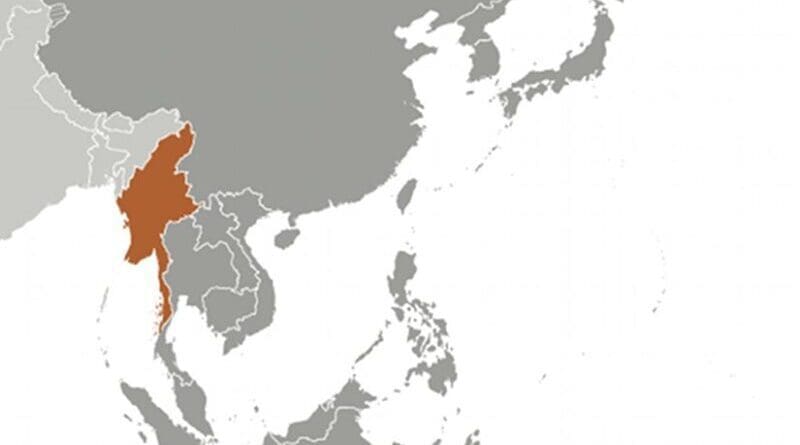Myanmar’s Historic Elections: Stakes Are High For India – Analysis
By R.S. Kalha*
Although Myanmar has had a nominally civilian government since 2011, the general election of 2015 promises to be another significant milestone on the road towards the evolution of Myanmar’s polity towards democracy. It is true that even if the general elections scheduled for November 8, 2015 are successfully concluded, Myanmar can by no means be termed as a fully functioning democracy, as we understand it.
Under the Myanmar constitution, the Hluttaw (parliament) comprises of the 440- seat Lower House and the 224-seat Upper House. The armed forces will continue to play a substantial role in that 25% of the seats in both the lower and the upper house of the new Hluttaw will be reserved for the military, and the military drafted constitution cannot be amended without their concurrence. This is what has been termed as “disciplined democracy” with some Myanmar officials suggesting that the political process was designed to slowly evolve on the lines of South Korea, Taiwan and Indonesia rather than the chaotic Arab Spring.
As for the ‘fairness’ of the elections, most observers feel that even if they are “reasonably free and fair” it would not be a bad beginning. The trend towards full democratic functioning must be encouraged, even if it is a rather slow process.
The world is watching with bated breath on what happens to Aung San Suu Kyi personally and also how much support her party is able to garner in the elections. There is absolutely no doubt about her enormous popularity and personal commitment to democracy and to the Myanmar people.
She has suffered incarceration for years, but her resoluteness on this commitment has never wavered. There are no reliable opinion polls to indicate her present strength, but if the precedents of the two previous occasions when elections were held are taken into account, then the National League for Democracy’s popularity would be self-evident.
In 1990, the National League for Democracy (NLD) won 392 of the 492 available seats, taking 52.5% of the national vote. In 2012, the NLD claimed 43 of the 45 seats on offer, gaining about 66% of the vote. It is entirely possible that Aung San Suu Kyi may well lead the NLD to a resounding victory, but she cannot assume the office of president. Under Article 59F of the present constitution “if one of your legitimate children… owes allegiance to a foreign power” then that person stands disqualified.
This proviso seems to be specifically designed to disqualify Aung San Suu Kyi, since both her sons are British passport holders. On the other hand, even if she wins a crushing victory the unelected armed forces representatives in parliament can still block any attempt to change this clause. Therefore, unless the armed forces undergo a complete change of heart in the next few months, Suu Kyi cannot become the president in 2016.
It should be kept in mind that ministers heading key security ministries (defence, home affairs and border affairs) would continue to be selected by the army chief and not the president as per the present constitution.
But 2015 is different from the earlier years as the present government headed by President Thein Sein has successfully made an opening to the Western powers.
Relations with China remain problematical, but President Xi Jinping took the initiative to invite Aung San Suu Kyi to Beijing where she received Head of State treatment. It would seem that China is prepared to work with whoever emerges the winner in the elections. Nevertheless, China’s overwhelming presence cannot be discounted, nor its influence ignored.
China will continue to remain an imperative factor both politically, militarily and economically in the politics of Myanmar. This is in part true since the Myanmar armed forces are reluctant to loosen their hold on political affairs of the country and also because of the continuing inter-ethnic strife, where China can stoke fires if it so wishes to do so to the discomfort of the ruling dispensation in Myanmar. The China factor will continue to remain an important component in the evolution of Myanmar’s ‘democracy’.
The forthcoming elections in Myanmar are fundamentally important for India too. With a common land border of 1,640 km and a long maritime boundary, maintaining sound relations with Myanmar is critical for India’s security and safety, particularly as far as India’s northeast is concerned. Myanmar has been helpful in dealing with insurgent elements operating on both sides of the border. Myanmar provides India with critical land connectivity to ASEAN (Association of Southeast Asian Nations) countries.
The success of Prime Minister Narendra Modi’s newly-enunciated “Act East Policy” depends essentially on a robust partnership with Myanmar. The stakes for India remain high. A successful outcome needs to be welcomed, even if it is but a small step towards full democracy.
*R.S. Kalha is a former Indian diplomat and author of book “India-China boundary issues; Quest for settlement”. He can be contacted at [email protected]

